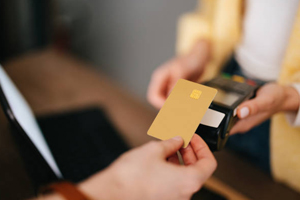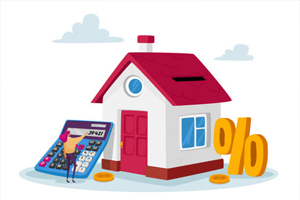How to choose the best cryptocurrency wallet?
Explore the ultimate guide to cryptocurrency wallets, covering types, security best practices, and comparisons Make informed decisions to secure and manage your digital assets effectively
Welcome to the comprehensive guide on cryptocurrency wallets! In the fast-evolving landscape of digital currencies, managing and securing your assets is of utmost importance. This guide aims to provide you with a detailed exploration of key aspects related to cryptocurrency wallets, ranging from understanding the different types available to implementing the best security practices. Whether you're a seasoned cryptocurrency enthusiast or just starting your journey, this guide will equip you with the knowledge needed to make informed decisions about choosing, securing, and managing your cryptocurrency wallet.
As we delve into the content, you'll find detailed breakdowns of various wallet types, each with its unique features and use cases. We'll explore the critical factors to consider when selecting a wallet, such as security features, user-friendliness, and supported cryptocurrencies. Additionally, we'll compare popular wallets on the market, offering insights to help you make a well-informed choice based on your specific needs.
Security is a top priority when dealing with cryptocurrencies, and our guide covers best practices to ensure the safety of your digital assets. From two-factor authentication to private key management, you'll discover strategies and measures to protect your investments effectively. We'll also address the importance of regular updates and explore recovery options, providing a holistic approach to wallet security.
Lastly, our guide concludes with a set of frequently asked questions (FAQs) to address common queries and concerns about cryptocurrency wallets. Whether you're curious about the basics, seeking guidance on specific features, or looking for insights into industry best practices, our FAQs section aims to provide clarity and guidance.
Embark on this journey with us as we navigate the intricate world of cryptocurrency wallets. Whether your goal is to enhance the security of your existing wallet, explore new options, or simply gain a deeper understanding of this crucial aspect of the cryptocurrency ecosystem, you're in the right place. Let's dive in and empower you to navigate the dynamic and exciting realm of cryptocurrency wallets.

Understanding Cryptocurrency Wallets
Types of Cryptocurrency Wallets
When it comes to managing your digital assets, various types of cryptocurrency wallets are available, each with its own set of features and characteristics. Here is a comprehensive breakdown of the main types:
Software Wallets
Software wallets are applications or programs that you can install on your computer or mobile device. They are convenient and user-friendly, making them suitable for everyday transactions. However, they are connected to the internet, which introduces potential security concerns.
- Advantages: Easy to use, convenient for daily transactions.
- Considerations: Security depends on the device and network.
Hardware Wallets
Hardware wallets are physical devices designed to store your cryptocurrency offline, providing an extra layer of security. They are considered one of the safest options for long-term storage of digital assets.
- Advantages: High security, protection against online threats.
- Considerations: Initial cost and the need to carry a physical device.
Paper Wallets
A paper wallet involves printing your public and private keys on a physical document. While it's a form of cold storage, it requires careful handling to prevent physical damage or loss.
- Advantages: Offline storage, immune to online hacking.
- Considerations: Vulnerable to physical damage or loss.
Online Wallets
Online wallets, also known as web wallets, are cloud-based and accessible from any device with an internet connection. They are convenient for frequent access but may be more susceptible to security risks.
- Advantages: Accessibility, suitable for everyday use.
- Considerations: Security relies on the provider's measures.
Choosing the right type of cryptocurrency wallet depends on your specific needs, preferences, and the level of security you require for your digital assets.
Key Factors in Choosing a Cryptocurrency Wallet
Security Features
Ensuring the security of your cryptocurrency wallet is paramount to safeguarding your digital assets. Different wallets come with various security features designed to protect your funds. Here is a comprehensive breakdown of key security features:
Encryption
Most reputable wallets use advanced encryption algorithms to secure your private keys and transaction data. This ensures that even if someone gains unauthorized access to your device or wallet, they cannot decipher sensitive information.
Two-Factor Authentication (2FA)
Implementing 2FA adds an extra layer of protection by requiring a secondary verification step, usually through a mobile app or SMS code. This significantly reduces the risk of unauthorized access, especially in the case of a compromised password.
Biometric Authentication
Some wallets offer biometric authentication, such as fingerprint or facial recognition. This provides a convenient yet secure method to access your wallet, adding an additional barrier against unauthorized access.
Hierarchical Deterministic (HD) Wallets
HD wallets generate a unique address for each transaction, enhancing privacy and security. This feature prevents others from linking your transactions together, providing a more anonymous and secure way to manage your cryptocurrency.
Backup and Recovery Options
Wallets with robust security features often include backup and recovery options. This allows you to create backups of your wallet's critical information, such as seed phrases or private keys, ensuring you can regain access even if your device is lost or damaged.
Multisignature Support
Some advanced wallets support multisignature transactions, requiring multiple private key signatures to authorize a transaction. This feature adds an extra layer of security, especially useful for shared wallets or business accounts.
Open Source Code
Wallets with open-source code allow users to inspect the software for vulnerabilities or backdoors. The transparency provided by open-source wallets contributes to community trust and ensures that security experts can identify and address potential issues promptly.
When choosing a cryptocurrency wallet, carefully consider the security features offered and how well they align with your preferences and risk tolerance. A well-protected wallet is essential for a secure and worry-free cryptocurrency experience.
User-Friendliness
Ensuring a user-friendly experience with your cryptocurrency wallet is crucial for both newcomers and experienced users. A user-friendly wallet not only simplifies transactions but also enhances overall satisfaction. Here's a comprehensive breakdown of key aspects related to user-friendliness:
Intuitive Interface
An intuitive interface is essential for users to navigate the wallet effortlessly. Clear and well-designed menus, buttons, and transaction histories contribute to a positive user experience, especially for those new to the cryptocurrency space.
Easy Setup Process
A straightforward setup process is crucial, particularly for beginners. Wallets with easy-to-follow setup procedures, including clear instructions and prompts, help users get started quickly and with confidence.
Multi-Currency Support
User-friendliness is often enhanced when a wallet supports multiple cryptocurrencies. This allows users to manage various digital assets within a single, easy-to-use interface, reducing the need for multiple wallets.
Transaction Confirmation Alerts
Providing clear and timely transaction confirmation alerts keeps users informed about their activities. Alerts can be in the form of notifications, emails, or messages, ensuring users have peace of mind regarding their transactions.
Accessible Help and Support
A user-friendly wallet includes accessible help and support options. This may involve in-app guides, FAQs, or responsive customer support. Having readily available assistance ensures users can address issues or queries promptly.
Mobile Accessibility
Wallets that offer mobile accessibility through dedicated apps or responsive web design cater to users who prefer managing their cryptocurrencies on the go. Mobile accessibility contributes to the overall convenience of the wallet.
Language and Localization
User-friendliness is enhanced when wallets support multiple languages and localization. This accommodates a diverse user base, making the wallet accessible to individuals from various regions and language backgrounds.
Educational Resources
Providing educational resources within the wallet, such as tutorials, glossaries, or links to relevant articles, helps users understand cryptocurrency concepts and the wallet's features. This contributes to a more informed and confident user base.
Choosing a user-friendly cryptocurrency wallet is essential for a positive and efficient experience. Consider these factors to ensure that your chosen wallet aligns with your preferences and ease of use expectations.
Supported Cryptocurrencies
Understanding the range of cryptocurrencies supported by a wallet is crucial for users who hold various digital assets. The ability to manage multiple cryptocurrencies within a single wallet can simplify the user experience. Here's a comprehensive breakdown of key considerations related to supported cryptocurrencies:
Diversity of Supported Coins
Wallets vary in the number and types of cryptocurrencies they support. Some wallets are designed exclusively for popular coins like Bitcoin and Ethereum, while others offer a broader selection, including altcoins and tokens. Consider the wallet's diversity in supported coins based on your investment portfolio.
Token Compatibility
Token compatibility is crucial, especially for users engaging in initial coin offerings (ICOs) or utilizing decentralized finance (DeFi) platforms. A wallet that supports a wide range of tokens ensures compatibility with emerging projects and decentralized applications (DApps).
Regularly Updated Coin List
Wallets that regularly update their supported coin list demonstrate commitment to staying current with the evolving cryptocurrency landscape. This ensures that users can access new and popular cryptocurrencies without the need to switch wallets frequently.
Integration with Exchanges
Wallets that integrate with cryptocurrency exchanges offer added convenience for users looking to trade or swap assets directly within the wallet interface. This streamlines the process of managing and exchanging cryptocurrencies without the need for external platforms.
Community Requests and Feedback
Wallets that consider community requests and feedback for adding new cryptocurrencies showcase a user-centric approach. Community-driven development ensures that the wallet aligns with the diverse needs and preferences of its user base.
Compatibility with New Protocols
Support for new blockchain protocols and consensus mechanisms is crucial for staying at the forefront of the cryptocurrency space. Wallets that adapt to emerging technologies and protocols provide users with access to innovative and cutting-edge projects.
Cross-Platform Consistency
Consistency in supported cryptocurrencies across different platforms, such as desktop, web, and mobile versions of the wallet, ensures a seamless experience. Users should be able to access and manage their cryptocurrencies regardless of the device they are using.
Security Measures for Each Supported Coin
Consideration of the security measures implemented for each supported coin is vital. Different cryptocurrencies may have unique security requirements, and a robust wallet should address these nuances to ensure the safety of users' assets.
When selecting a cryptocurrency wallet, carefully evaluate its supported cryptocurrencies to ensure it aligns with your current and future digital asset holdings. A well-chosen wallet provides a versatile and comprehensive solution for managing a diverse cryptocurrency portfolio.
Backup and Recovery Options
Having robust backup and recovery options for your cryptocurrency wallet is essential to safeguard your digital assets. Unexpected events such as device loss or failure can jeopardize access to your funds. Here's a comprehensive breakdown of key considerations related to backup and recovery:
Seed Phrases and Mnemonic Phrases
Many wallets provide users with seed phrases or mnemonic phrases during the initial setup. These are sequences of words that serve as a master key for wallet recovery. It's crucial to securely store and, if necessary, restore your wallet using these phrases.
Hardware Wallet Recovery Sheets
For hardware wallets, recovery sheets are often provided. These sheets contain spaces to write down your recovery seed, ensuring a physical backup in case of electronic failure. Storing this sheet in a secure location adds an extra layer of protection.
Encrypted USB Drives or External Devices
Backing up your wallet on encrypted USB drives or external devices provides an additional layer of security. Ensure that the external storage is password-protected and stored in a separate physical location from your primary device.
Cloud-Based Backup Solutions
Some wallets offer cloud-based backup solutions, allowing users to securely store encrypted backups on reputable cloud services. While convenient, users must prioritize platforms with strong security measures and use robust encryption for data protection.
Recovery through Social Authentication
Advanced wallets may offer recovery options through social authentication. This involves setting up trusted contacts who can help recover your wallet in case of an emergency. This feature adds an additional layer of security and flexibility.
Regular Backup Reminders
Wallets that provide regular backup reminders encourage users to keep their recovery options up to date. These reminders may be in-app notifications or emails, prompting users to review and update their backup strategies regularly.
Testing Recovery Processes
Proactive wallets encourage users to test their recovery processes before they encounter an actual issue. This involves simulating the recovery of the wallet using backup options to ensure a smooth and successful restoration process.
Secure Location for Physical Backups
Emphasizing the importance of storing physical backups in secure locations is crucial. Users should consider fireproof safes, safety deposit boxes, or other secure environments to protect physical backup elements from damage or theft.
Choosing a cryptocurrency wallet with comprehensive backup and recovery options is vital for long-term security and peace of mind. Evaluate these features carefully to ensure that your digital assets remain accessible and secure, even in unforeseen circumstances.
Comparing Popular Cryptocurrency Wallets
Wallet A
Wallet A is a well-established cryptocurrency wallet known for its:
- Security Features: It employs advanced encryption and offers two-factor authentication for enhanced security.
- User-Friendliness: The intuitive interface and easy setup process make it accessible for both beginners and experienced users.
- Supported Cryptocurrencies: It supports a diverse range of cryptocurrencies, including popular tokens and altcoins.
- Backup and Recovery: Wallet A provides robust backup options, including seed phrases and cloud-based backups, ensuring users can recover their funds securely.
Wallet B
Wallet B is a feature-rich cryptocurrency wallet with the following highlights:
- Security Features: It incorporates biometric authentication and supports hierarchical deterministic wallets for added security.
- User-Friendliness: Wallet B boasts a sleek and user-friendly interface, with mobile accessibility and multilingual support for a global user base.
- Supported Cryptocurrencies: It offers extensive support for various cryptocurrencies, tokens, and is known for quick integration with new protocols.
- Backup and Recovery: Users benefit from multiple recovery options, including hardware wallet recovery sheets and the ability to test the recovery process.
Wallet C
Wallet C is a cryptocurrency wallet recognized for its:
- Security Features: It emphasizes open-source code, allowing users to scrutinize the software for enhanced security transparency.
- User-Friendliness: Wallet C focuses on an intuitive interface and provides educational resources within the wallet to empower users with cryptocurrency knowledge.
- Supported Cryptocurrencies: It supports a diverse range of cryptocurrencies and tokens, with regular updates to the supported coin list.
- Backup and Recovery: Wallet C encourages regular backup through reminders and integrates with secure cloud-based backup solutions.
Each of these wallets has its unique strengths, and the choice depends on individual preferences, security priorities, and the specific needs of the user. Evaluating these features comprehensively ensures users select a wallet that aligns with their cryptocurrency management requirements.
Best Practices for Cryptocurrency Wallet Security
Two-Factor Authentication
Implementing two-factor authentication (2FA) is a fundamental security measure for cryptocurrency wallets:
- Mobile Apps: Utilize 2FA through dedicated mobile apps that generate time-sensitive codes, adding an extra layer of protection.
- Biometric 2FA: Explore wallets that offer biometric 2FA, such as fingerprint or facial recognition, for secure and convenient access.
- Recovery Options: Ensure the wallet provides backup recovery options in case of lost 2FA devices to prevent potential lockout scenarios.
- Universal 2nd Factor (U2F): Consider wallets supporting U2F devices for hardware-based 2FA, further enhancing security.
Regular Updates
Regularly updating your cryptocurrency wallet is crucial for maintaining optimal security:
- Security Patches: Regular updates often include crucial security patches, addressing vulnerabilities and enhancing protection.
- New Features: Updates may introduce new security features, improving the wallet's overall resilience against evolving threats.
- Community Feedback: Consider wallets with active development and responsiveness to community feedback, ensuring a proactive approach to security concerns.
- Automatic Updates: Opt for wallets with automatic update features to ensure users benefit from the latest security enhancements without manual intervention.
Private Key Management
Effectively managing private keys is critical for ensuring the security of your cryptocurrency holdings:
- Offline Storage: Consider hardware wallets or cold storage solutions for keeping private keys offline, protecting them from online threats.
- Encrypted Backups: Create encrypted backups of private keys, stored in secure locations, providing a failsafe in case of device loss or failure.
- Avoiding Third-Party Services: Minimize the use of third-party services that handle private keys, reducing the risk of unauthorized access or exposure.
- Regular Audits: Periodically audit and review private key storage practices to identify and address potential vulnerabilities proactively.
By incorporating these best practices into your cryptocurrency wallet security strategy, you can significantly enhance the protection of your digital assets and minimize the risk of unauthorized access or loss.
FAQs on Cryptocurrency Wallets
Q1: What is a cryptocurrency wallet?
A1: A cryptocurrency wallet is a digital tool that allows users to store, manage, and transact with their cryptocurrencies. It consists of a public address for receiving funds and a private key for accessing and managing those funds securely.
Q2: How do I choose the right type of cryptocurrency wallet?
A2: The choice of a cryptocurrency wallet depends on factors like security preferences, user-friendliness, and the type of assets you hold. Consider factors such as software or hardware options, security features, and supported cryptocurrencies when making your decision.
Q3: Why is two-factor authentication (2FA) important for wallet security?
A3: Two-factor authentication adds an additional layer of security by requiring a secondary verification step, usually through a mobile app or SMS code. This extra layer helps prevent unauthorized access, enhancing the overall security of your cryptocurrency wallet.
Q4: How often should I update my cryptocurrency wallet?
A4: It's advisable to update your cryptocurrency wallet regularly. Updates often include security patches and new features that enhance the wallet's resilience against evolving threats. Consider wallets with automatic update features for seamless security maintenance.
Q5: What are the best practices for private key management?
A5: Private key management involves storing keys securely offline, creating encrypted backups, avoiding third-party services, and conducting regular audits. By following these best practices, you can protect your private keys and ensure the security of your cryptocurrency holdings.




























